Addiction can affect anyone and often co-occurs with other mental health issues. Many people living with addiction feel trapped in their condition and experience profound guilt and shame. The stigma around addiction can also prevent people from seeking the help they need, which often leads to further isolation. We are here to tell you that you are not alone and help is available. Twin Branch Wellness & Recovery believes that every woman struggling with addiction can overcome and achieve anything.
Keep reading our blog to learn about the best treatment approach to substance abuse.
What is Continuum of Care for Substance Abuse Treatment?
Continuum of care for substance abuse treatment is a structured approach that provides comprehensive and coordinated services to individuals dealing with substance use disorders. This model ensures that patients receive appropriate and continuous care tailored to their specific needs as they progress through various stages of recovery. It typically includes detoxification, inpatient rehabilitation, outpatient treatment, counseling, support groups, and aftercare planning. The primary aim is to provide a seamless transition between different levels of care, helping individuals achieve and maintain long-term sobriety.
The American Society of Addiction Medicine (ASAM) provides criteria to help support the continuum of care needs. The continuum of care approach is crucial in substance abuse treatment, mainly because it focuses on aftercare services. These services, such as counseling and support groups, are instrumental in preventing relapse by addressing ongoing challenges and providing a network of support.
An individual might start with detoxification to safely manage withdrawal symptoms, move to inpatient rehab for intensive therapy, and then transition to outpatient treatment for continued support while reintegrating into daily life. By offering a continuum of care, treatment programs can address the complex and multifaceted nature of addiction, helping individuals build a stable foundation for recovery and improve their overall quality of life.
ASAM Level 0.5: Early Intervention Services for Substance Abuse Disorders
The first step in the continuum of care model is early intervention services. Early intervention services for addiction treatment are critical in addressing substance use issues before they escalate into more severe and chronic problems. These services aim to identify individuals at risk of developing substance use disorders and provide timely support and treatment to prevent the progression of addiction. Early intervention can include a variety of strategies, such as brief interventions, educational programs, counseling, and referral to specialized treatment when necessary. By addressing substance use issues at an early stage, these services can significantly reduce the adverse health, social, and economic impacts of addiction.
ASAM Level 1: Outpatient Services for Substance Abuse Disorders
ASAM Level 1 is the initial level of care for people with less severe substance abuse disorders. Outpatient services for addiction treatment offer a flexible and practical approach for individuals seeking help with substance use disorders while maintaining their daily responsibilities. Unlike inpatient or residential treatment programs, outpatient services allow patients to live at home and continue working, attending school, or fulfilling family obligations.
Patients can receive comprehensive treatment, including individual and group therapy, medication management, and educational workshops, all while staying engaged with their regular lives. This real-world application of skills learned in therapy can be particularly beneficial, as patients can immediately practice and reinforce new coping strategies in their everyday environments. Additionally, outpatient services often include support networks such as 12-step programs or other peer support groups, which provide ongoing encouragement and accountability. By offering a structured yet flexible approach, outpatient treatment empowers individuals to take control of their recovery journey, fostering resilience and promoting sustainable sobriety.
Standard outpatient programs typically require a lower time commitment, ranging from one to three hours per week.
ASAM Level 2: Intensive Outpatient/Partial Hospitalization Services for Substance Abuse Disorders
ASAM Level 2 offers addiction education and treatment components. It is divided into two common sub-levels: Level 2.1 Intensive Outpatient Services (IOP) and Level 2.5 Partial Hospitalization Services (PHP) or High Intensity Outpatient (HIOP).
Intensive Outpatient Services
IOP services require nine to nineteen hours of services per week. Services are similar to those in Level 1 but on a more intense scale. Treatment can take place during the day, in the evenings, or on the weekends. These programs are designed for those who need more support than standard outpatient services but do not require the round-the-clock supervision of inpatient or residential treatment.
IOP services typically involve attending treatment sessions several days a week, each lasting a few hours. This structure allows for a comprehensive approach to recovery, offering a blend of individual therapy designed to address the root causes of their addiction and develop coping mechanisms, group counseling to build a strong support network, educational workshops, and sometimes family therapy. The goal is to equip individuals with the tools and strategies needed to manage their addiction and prevent relapse, all while integrating these skills into their daily lives.
Partial Hospitalization Services
Also known as day treatment, PHP services involve 20 hours or more hours of services per week. PHP differs from IOP in terms of intensity, but it also directly offers medical, psychological, psychiatric, laboratory, toxicology, and emergency services by qualified providers.
PHP programs offer intensive care for individuals needing substantial support while living at home. These programs are often called day treatment programs because they require participants to attend treatment sessions for several hours a day, five to seven days a week. They provide a comprehensive and structured environment that includes individual therapy, group therapy, medical monitoring, psychiatric services, and educational workshops. This level of care is ideal for those who need intensive treatment but do not require 24-hour supervision, allowing them to return home each evening.
The daily structure and routine of partial hospitalization services help to stabilize individuals, providing them with the skills and strategies needed to manage their addiction. The program's multidisciplinary approach ensures that all aspects of an individual's well-being are addressed, including mental health, physical health, and social support.
ASAM Level 3: Residential/Inpatient Services for Substance Abuse Disorders
ASAM Level 3 services are divided into two common sub-levels, 3.5 high-intensity treatment and 3.1 low-intensity treatment. Both occur in a structured, residential setting, meaning you live on-site, and staff are present 24/7. Level 3.5 requires 30+ hours of programming, whereas level 3.1 requires 5 hours of programming and may often be paired with an IOP. Residential services for addiction treatment, also known as inpatient treatment, offer an immersive and structured environment for individuals seeking to overcome substance use disorders. These programs provide 24-hour supervision and support, creating a safe and controlled setting where patients can focus entirely on their recovery without the distractions and triggers of everyday life.
Typically, residential treatment programs last 30 to 90 days, though some may extend longer depending on the individual's needs and progress. The intensive nature of residential services allows for a comprehensive approach to treatment, encompassing medical care, individual and group therapy, behavioral therapies, and holistic activities such as fitness, mindfulness, and art therapy. One of the primary advantages of residential treatment is the opportunity for patients to completely disengage from their regular environment, which may be filled with stressors and enablers of substance use. In this supportive setting, individuals can develop new coping skills, establish healthy routines, and connect with others on similar recovery journeys.
The residential model for 3.5 high-intensity treatment also allows for close monitoring by healthcare professionals, ensuring that any co-occurring mental health issues are addressed and that treatment plans are adjusted as needed. By providing a structured, supportive, and intensive approach to recovery, residential services can be particularly effective for those with severe addictions or those who have not succeeded with less intensive forms of treatment.
ASAM Level 4: Medically Managed Intensive Inpatient Services for Substance Abuse Disorders
Medically managed intensive inpatient services for addiction treatment represent the highest level of care for individuals with severe substance use disorders, particularly those with complex medical or psychiatric needs. These programs provide 24-hour medical supervision and comprehensive care in hospital settings, such as acute care units, ensuring patients receive the most intensive and integrated treatment.
Medically managed inpatient services are designed to address both the physical and psychological aspects of addiction and withdrawal, making them ideal for individuals who require medical detoxification, have co-occurring mental health disorders, or have experienced multiple relapses.
One of the critical components of medically managed intensive inpatient services is the close monitoring and support provided by a multidisciplinary team of healthcare professionals, including doctors, nurses, psychiatrists, and therapists. This team works together to create and implement individualized treatment plans that address each patient's unique needs. Medical interventions often include medication-assisted treatment (MAT) to manage withdrawal symptoms and reduce cravings, as well as treatments for any co-occurring conditions. These programs' highly structured and supportive environment provides a safe space for individuals to begin their recovery journey, laying the groundwork for sustainable sobriety and improved overall health.
Twin Branch Wellness & Recovery for Women: Residential Treatment Program
Twin Branch Wellness & Recovery for Women offers a residential addiction treatment program for adult women ready to change their lives. It was created by women for women in search of recovery, trauma resolution, and a healthy path for the future.
Our residential treatment program offers women-specific, clinically focused, individualized care in an environment poised for healing. Our clinical and medical teams work together to create the most diverse and effective treatment program for each woman. Our treatment programs will offer the tools you need to sustain a life path of sobriety and wellness.

Our clients live at our residence during treatment. During this time, each woman receives access to 24/7 care and support from a team of highly credentialed recovery professionals and medical staff. Each woman is given the time and safe environment to practice learned coping skills to deal with life’s triggers positively.
Our services include:
- Individual therapy
- Small group therapy
- Clinical therapies
- 12-step program
- Activity therapy
- Medically-assisted treatment
- Family therapy
- Specialized sessions like anger management, stress management, and grief counseling
- General wellness, including nutrition and holistic medicine
- Continuing care management
We understand that every woman is different. At Twin Branch, we gather critical information about each woman’s story to understand her needs better. We utilize thorough assessments to aid in identifying strengths, needs, abilities, and preferences. These assessments guide the client, clinicians, and medical staff in developing an effective individualized treatment plan. The treatment plan uses many modalities to address physical and mental health, nutrition, sleep habits, life skills, healthy life goals, and ongoing support.
Are you ready to start a new chapter? Are you ready to live a healthier and more fulfilling life? If you or someone you love are struggling with substance abuse, Twin Branch Wellness & Recovery for Women is here to help you begin your recovery journey. It is never too late or too soon to choose wellness and develop the tools necessary to manage life's demands.











